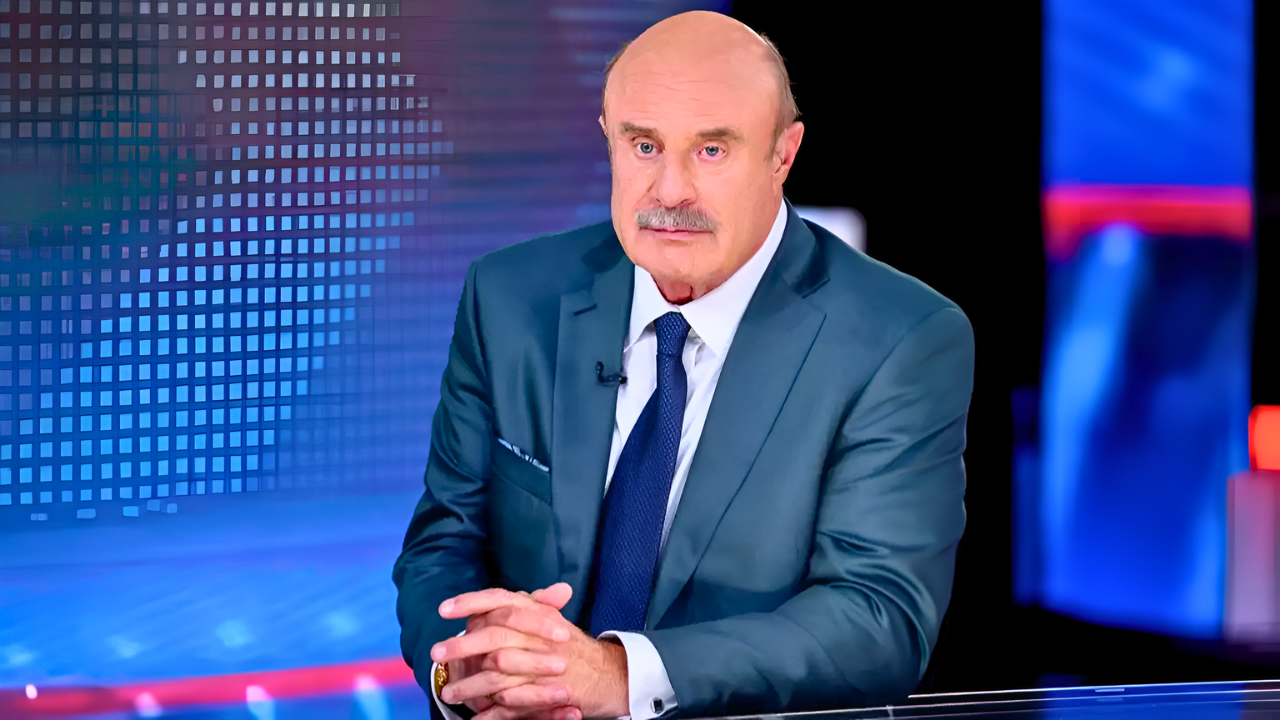
A once-promising media venture led by Dr. Phil McGraw has come to a dramatic end. A federal bankruptcy judge has ordered the liquidation of Merit Street Media, the company McGraw launched after his long-running daytime talk show ended. The ruling follows a contentious trial and signals the collapse of a high-profile attempt to reshape family-friendly television.
Judge’s Rebuke and Evidence of Misconduct

The court’s decision was shaped by a series of extraordinary events. Judge Scott Everett, presiding over the case, described Merit Street Media as “dead as a doornail,” citing the company’s lack of prospects for recovery. Central to the judge’s ruling was the revelation that McGraw had formed a new company, Envoy Media, just one day before Merit Street filed for bankruptcy. This move raised suspicions of financial maneuvering to avoid creditor claims.
Further damaging to McGraw’s case was evidence that he deleted text messages during the legal discovery process. The court found these messages included discussions about eliminating Trinity Broadcasting Network (TBN) as a majority partner and “wiping out” creditor claims. Judge Everett’s decision to convert the case to Chapter 7 liquidation reflected concerns over these compliance violations.
Mounting Debts and the Collapse of Key Partnerships

Merit Street Media’s financial troubles accelerated when the Professional Bull Riders Association (PBR) filed a $181 million claim for unpaid broadcasting obligations. The deal, which lasted only five months, became a flashpoint in the bankruptcy proceedings. The size of the claim, combined with other mounting debts, left the company unable to meet its obligations.
The partnership between McGraw’s Peteski Productions and TBN, which initially promised to reach over 80 million U.S. homes, quickly deteriorated. TBN alleges that McGraw orchestrated a scheme to seize majority control, using emergency loans and financial maneuvers to flip the ownership structure. As the company’s finances unraveled, TBN filed a lawsuit accusing McGraw of breach of contract and fraud.
Layoffs, Severance Payments, and Community Impact

The fallout from Merit Street’s collapse was immediate and severe for its workforce. On the day the company filed for bankruptcy in July 2025, nearly all employees were laid off. The layoffs hit Fort Worth, Texas, where the company’s production campus had employed approximately 70 people before the bankruptcy filing.
Approximately one month after the layoffs, McGraw’s Peteski Productions paid $925,000 to former employees to cover severance obligations. The timing of this payment, coming after the bankruptcy filing and the creation of Envoy Media, raised questions among creditors and the court about the handling of company assets.
Asset Liquidation and Industry Repercussions
With the court’s conversion of the case to Chapter 7 liquidation, a trustee has taken control of Merit Street’s remaining assets. These include media libraries, intellectual property, broadcast rights, and production equipment, with estimated values ranging from $100 million to $500 million. The trustee began the process of selling these assets, with initial bids due in September 2025, in an effort to recover funds for creditors.
The forced sale of Merit Street’s assets is expected to have ripple effects across the media industry. Competing networks and streaming platforms are positioning themselves to acquire valuable content and broadcast rights at discounted prices.
A Cautionary Tale for Celebrity Media Ventures

Merit Street Media’s rapid rise and fall offers a stark warning about the risks of celebrity-backed media ventures. Despite Dr. Phil McGraw’s two decades of television success, the new company struggled to deliver on its ambitious promises. Merit Street failed to produce the contracted 160 episodes of original content, undermining its ability to generate advertising revenue and fulfill major broadcast deals.
The company’s inability to achieve projected cost savings or attract sufficient viewership led to mounting losses. Industry analysts point to the PBR deal as a cautionary example: Merit Street accepted major commitments without the production capacity or financial stability to deliver.
Looking Ahead: Legal Battles and Industry Lessons
McGraw’s legal team indicated they would file an appeal of the liquidation order. However, the Chapter 7 conversion remains in effect, and the bankruptcy court has oversight of the asset liquidation process.
The collapse of Merit Street Media underscores the challenges facing celebrity-driven media projects in a fragmented and competitive landscape. Investors and industry observers are likely to scrutinize future ventures with greater skepticism, demanding stronger operational foundations and transparency. For now, the fate of Dr. Phil’s media ambitions—and the assets of his former company—rests in the hands of the bankruptcy court and its appointed trustee.